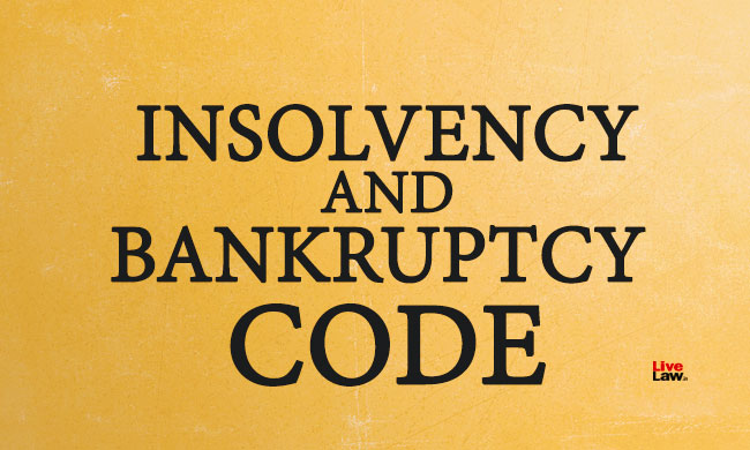IBC (Amendment) Ordinance, 2020: A Pandemic Of Bad Drafting
Sakal Bhushan
15 Jun 2020 9:24 AM IST

Much awaited amendment has been made in IBC by an Ordinance promulgated on 5th June, 2020. It is not happily worded, and within a short span of time we have seen many conflicting interpretations. Two Sections, viz. 10A and 66(3) have been incorporated in the Insolvency and Bankruptcy Code, 2016. The arrangement of expressions in the newly-inserted Section 10A is very poor, creating the unwanted confusion, compelling me to name it "A Pandemic of Bad Drafting".
The main part of Section 10A is reproduced as under:
"Notwithstanding anything contained in Sections 7, 9 and 10, no application for initiation of corporate insolvency resolution process of a corporate debtor shall be filed, for any default arising on or after 25th March, 2020 for a period of six months or such further period, not exceeding one year from such date, as may be notified in this behalf:"
In fact, the placement of the expression "as may be notified" used at the end of the main Section 10A is the root cause of confusion. Misled by this wrong placement, many commentators have unwittingly linked this expression with the immediately preceding expression "such date" leading to a wrong interpretation. Expression "such date" is already provided as 25th March, 2020 and so it needs no further notification. Contextually and logically, the expression "as may be notified" is truly linked with the expression "such further period" which could be notified by the Central Government in due course after evaluation of the overall situation of COVID-19 pandemic in near future. So read, this main part of Section 10A in fact defines the "default period" and not the "non-filing period". So what is intended to be conveyed by the drafter is that the "defaults arising on or after 25th March, 2020 for a period of six months or such further period as may be notified by the Central Government in this behalf but not exceeding one year from the said date" have been made "non-actionable". The main part of Section 10A could have been better cast or rearranged in the following manner for conveying the intended purpose thereof:
"Notwithstanding anything contained in Sections 7, 9 and 10, no application for initiation of corporate insolvency resolution process of a corporate debtor shall ever be filed for any "default arising on or after 25th March, 2020 for a period of six months or such further period as may be notified by the Central Government in this behalf but not exceeding one year from the said date."
The defaults committed before 25th March,2020 have been expressly saved in the Explanation attached to this Section. So the bar created by Section 10A on filing of the insolvency applications will not apply to the defaults committed before 25th March, 2020 and impliedly also to the defaults committed after the end of six months or the extended period, if any notified in due course. However, the filing of such applications for defaults committed during this period starting on 25th March and continuing till the end of six months or the extended period, as the case may be, is contextually ever barred from 25th March, 2020 itself, and the Proviso to Section 10A further clarifies this position. As a logical consequence thereof, the pending applications also filed on or after 25th March, 2020 till 5th June, 2020 in relation to such defaults being contrary to this Ordinance shall stand dismissed as barred by law. This Ordinance is basically having retrospective effect in the sense that it also affects the pending applications, if any, filed between 25th March, 2020 and 5th June, 2020 with respect to such defaults, though there may be a very few of them, if at all filed during this pandemic period. It would have been better had it been so stated clearly in some Explanation attached to this Section. It saves the crucial judicial time and efforts which an astute drafter should always keep in mind while drafting a statute.
An alternative to the Pandora's box
But a more basic question is "What could have been a better alternative to achieve the objectives cited in the preamble of the Ordinance?'. I think since the intention was to make certain defaults occurring during the pandemic period "non-actionable" for the purpose of triggering insolvency process by applications under Sections 7, 9 and 10 and also for the purpose of Section 66 IBC, the better way would have been to amend the definition of "Default" itself by simply adding a Proviso in Section 3(12) to the following effect:
"Provided that the defaults arising on or after 25th March, 2020 for a period of six months or such further period as may be notified by the Central Government in this behalf but not exceeding one year from the said date, shall not be considered for the purpose of calculating the 'minimum amount of default' under Section 4 of the Insolvency and Bankruptcy Code, 2016."
This would have taken care of all the objectives cited in the preamble of the Ordinance and there would have been no confusion at all. The whole of Part II of the IBC, 2016 which includes Sections 7, 9, 10 and 66 as well would have become inapplicable to such defaults for the intended period. Through the medium of this Article, I request the concerned authorities in the central Government to take cognizance of the point raised here for improving their future endeavours in enacting legislations. This will save the crucial time and efforts of the courts and the practitioners, mitigate the burden of the already burdened judiciary, avoid conflicting judgements and serve the cause of justice.
Views Are Personal Only.
(Author is practicing Lawyer at the Delhi High Court)


